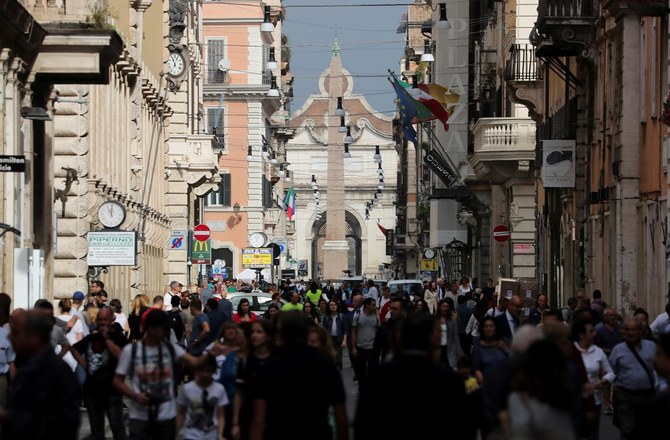ROME: Women’s rights and the fight against fundamentalism were the main themes of the ninth Moroccan Italian festival being held in Italy until Saturday.
The event, canceled last year due to the coronavirus disease (COVID-19) pandemic, aims to strengthen links between the two countries while also celebrating the history and culture of the north African nation.
The cultural review, conceived by Abdallah Khezraji, vice president of the Veneto regional council for immigration, is being staged in Treviso, near Venice with various associated events run in towns close to the city.
Speaking at the festival launch, Khezraji said: “We wanted to start again our festival by focusing on cultures that opens minds and fosters dialogue.”
Among delegates attending the opening ceremony was the Moroccan Ambassador to Italy Youssef Balla, Consul General Chafq Cherkoui, Mayor of Treviso Mario Conte, area Prefect Maria Rosaria Lagana, and representatives of the local political, cultural, financial, and business communities.
Abdelkrim Bennani, president of the Ribat Al-Fath Association and co-organizer of the event, described the Treviso festival as “a fundamental tool for mutual knowledge and collaboration between countries.”
Balla said it was, “such an important event for integration and to promote an even stronger relationship between the people of Italy and Morocco.”
According to official figures, Moroccans are currently the largest non-EU immigrant community in Italy, mainly living in the northern regions of Lombardy, Piedmont, and Emilia Romagna.
In the previous legislature, Italy’s Parliament included two MPs of Moroccan origin. And many Moroccan doctors have been working in Italian hospitals to help combat the COVID-19 health crisis.
“Moroccans are a well-integrated community that acts as a human bridge between Italy and Morocco,” Balla added.
The festival program has included conferences and workshops on the history and economy of Morocco, and the launch of five books, including one on Islamic burial rites and the difficulties in finding space for Muslims in Italian cemeteries.
A panel on Islamic religion and its relationship with Catholicism will be hosted on Saturday by journalists Zouhir Louassini, a columnist for the Vatican newspaper L’Osservatore Romano, and Paolo Di Giannantonio, of the Italian state broadcaster RAI.
One of the events will focus on issues relating to women in Italy and Morocco.
Khezraji said: “The Kingdom of Morocco is attentive on the legislative front for the protection of women and is seriously committed against extremists.”
The festival will draw to a close with a themed dinner titled, “Against Taliban Fundamentalism,” being held in the historic town of San Dona di Piave.




